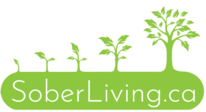
How Do I Handle Stress Without Turning to Substance Use?
Stress is unavoidable. From work deadlines and family responsibilities to health concerns and financial pressures, it builds up, and without healthy coping strategies, it can feel overwhelming. Many people turn to drugs or alcohol for quick relief. But that relief is temporary, and the consequences can be long-lasting.
At Sober Living, we understand that recovery means building a toolkit of practical, sustainable ways to manage stress, without falling back into harmful patterns. Whether you’re in recovery or trying to avoid relapse, here are proven, empowering ways to handle stress that won’t sabotage your progress.
Move Your Body to Move Your Mind
Exercise is one of the fastest and most effective ways to reduce stress naturally. It boosts endorphins, clears your head, and eases muscle tension.
- Go for a brisk 20-minute walk
- Try yoga, swimming, or cycling
- Stretch or do bodyweight workouts at home
You don’t need a gym membership. The goal is consistent movement, not perfection.
Create a Calming Daily Routine
Stress thrives in chaos. A daily routine helps restore a sense of control and order.
- Wake and sleep at the same time each day
- Schedule breaks for meals, rest, and exercise
- Build in time for yourself—reading, journaling, or reflection
Even a loose routine can provide a framework that reduces anxiety and supports mental stability.
Talk It Out: Connection Is Key
Bottling up stress only makes it grow. Talking to someone—anyone—can provide relief and clarity.
- Call a friend or trusted loved one
- Speak with a therapist or support worker
- Join a peer support group (in-person or online)
At Sober Living, we encourage ongoing community support as part of long-term recovery.
Ground Yourself in the Present
When stress overwhelms, grounding techniques can calm your nervous system and bring you back to now.
- Try the 5-4-3-2-1 technique: list what you can see, touch, hear, smell, and taste
- Practice box breathing (inhale-hold-exhale-hold for 4 seconds each)
- Label your emotions aloud—naming what you feel helps defuse it
These techniques are especially helpful in early recovery or during triggering moments.

Eat Like You Want to Feel Better
What you eat impacts your mood and stress levels. Proper nutrition supports your body’s ability to cope.
- Focus on whole foods: lean protein, vegetables, fruit, whole grains
- Limit sugar, caffeine, and processed snacks
- Stay hydrated—dehydration increases fatigue and brain fog
If you’re not sure where to start, consult a nutritionist familiar with recovery-friendly diets.
Improve Your Sleep, Improve Your Stress Response
Lack of sleep magnifies stress. Improving sleep habits can have a big impact.
- Keep consistent bed and wake times
- Avoid screens for an hour before bed
- Create a bedtime routine (reading, light music, stretching)
Even if you struggle to sleep through the night, better sleep hygiene helps.
Set Boundaries with People and Stressors
Not all stress is yours to carry. Boundaries protect your energy and help you prioritize your health.
- Say no when you’re stretched thin
- Limit contact with triggering or toxic individuals
- Set realistic expectations at work and home
Boundaries are self-respect in action, and they’re vital to recovery.
Replace Old Habits with New Rituals
If substances were your escape, it’s time to fill that space with something meaningful.
- Journal your thoughts and triggers
- Practice creative outlets like drawing or music
- Spend time in nature or with animals
- Try guided meditations or prayer if that resonates
These rituals give your brain a new, healthier way to self-soothe.

Know Your Triggers and Prepare for Them
Being aware of your stress triggers gives you the power to intervene early.
- Make a list of personal stressors
- Create a response plan (call someone, go for a walk, breathe)
- Keep reminders of your progress and goals nearby
We help clients at Sober Living build personalized relapse prevention plans that include stress-response strategies.
Ask for Help When It’s Too Much
Stress is human. Reaching out is a strength, not a weakness. If you’re struggling, don’t wait until things get worse.
At Sober Living, our team offers:
- Peer-led support groups
- Non-12-step recovery coaching
- Therapy options like CBT and DBT
- Safe housing and structured support
You don’t have to navigate stress alone. We’re here to support you, judgment-free.
Your Recovery Deserves Real Tools
Coping with stress without substances is possible—and powerful. Whether you’re just beginning your journey or rebuilding after relapse, learning healthy stress responses is one of the most important skills you can master.
At Sober Living, we’re here to walk that path with you. Reach out to us today to explore our programs and start your next chapter with strength, clarity, and support.



